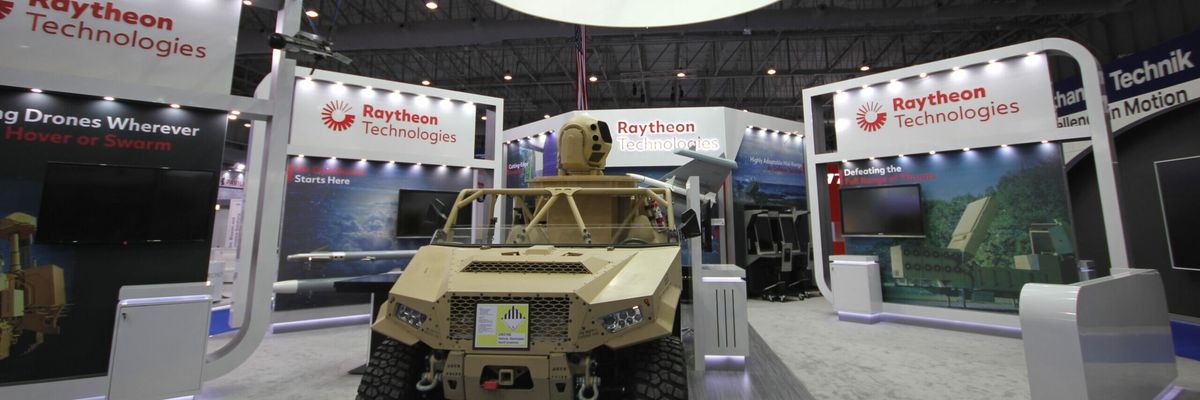Leading defense contractor Raytheon Technologies announced Tuesday that it plans to move its headquarters from Massachusetts to Arlington, VA, where execs will be a short walk from the Pentagon.
The decision comes only a month after Boeing said it would decamp from Chicago in favor of Arlington. With Raytheon and Boeing coming to town, every one of the five leading defense contractors will now be based in the D.C. area, giving them closer access to the network of officials, politicians and lobbyists that help these defense giants bring in massive profits. In other words, the military industrial complex has officially set up shop in the Pentagon’s shadow.
In a statement, Raytheon said their new location "increases agility in supporting U.S. government and commercial aerospace customers and serves to reinforce partnerships that will progress innovative technologies to advance the industry."
Mark Thompson, a national security analyst at the Project on Government Oversight, had a less sanguine take. “This increasing concentration of the military industrial complex a stop or two away from the Pentagon is really not good either for taxpayers, for troops, or for national security,” Thompson said, adding that the move amounts to “WD-40” for the “revolving door” between the government and defense companies.
Thompson also noted that each of these companies already had a major lobbying presence in D.C., meaning that the only real reason to move is to “rub shoulders with the powers that be.”
“If that’s what they’re trying to do,” he continued, “I just don’t think it bodes well for national defense.”
Of course, Raytheon's decision may have included factors beyond the proximity to the Pentagon. As Jeff Jacoby pointed out on Twitter, "Virginia is a right-to-work state with lower taxes" and has "a legislature that rarely convenes, a far more business-friendly environment, and a bipartisan congressional delegation."
Still, it's hard to see this as much more than Raytheon playing catch-up with other top defense firms. After all, the defense giant will still have “600 facilities across 44 states and [US] territories” and doesn’t plan to significantly expand its current Arlington-based team of 130 employees, so the move is more of a statement of intent than a big change in policy.
What’s interesting is that the migration of contractors toward D.C. started as the Cold War ended and American military policy entered a state of flux. General Dynamics got the ball rolling in 1991 when it left St. Louis in favor of Rosslyn, and Lockheed Martin followed suit shortly after when it moved from California to Bethesda, Maryland, after a 1994 merger with Martin Marietta. The next domino fell in 2011, when Northrop Grumman made its own pilgrimage to Arlington.
This movement toward the nation’s capital has gone hand-in-hand with another seismic shift in the defense industry: In the course of only 14 years in the 1980s and 90s, 51 different defense manufacturers dwindled down to five through a series of mergers and acquisitions. This pattern has continued in recent years, most notably with Raytheon’s 2020 merger with United Technologies.
Thompson argues that these trends are likely related. “As the number [of contractors] shrinks, the importance of the Pentagon to each of them becomes more important,” he said. “They need every edge they can get.”
















